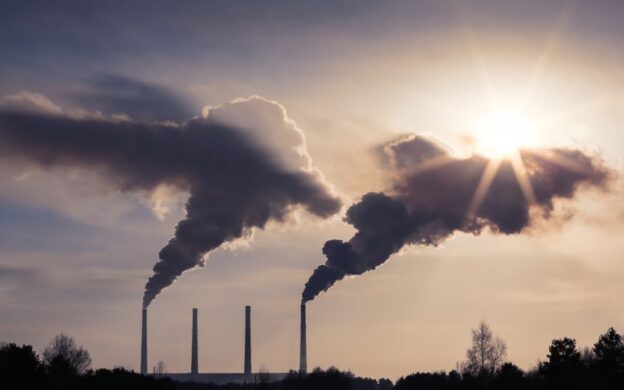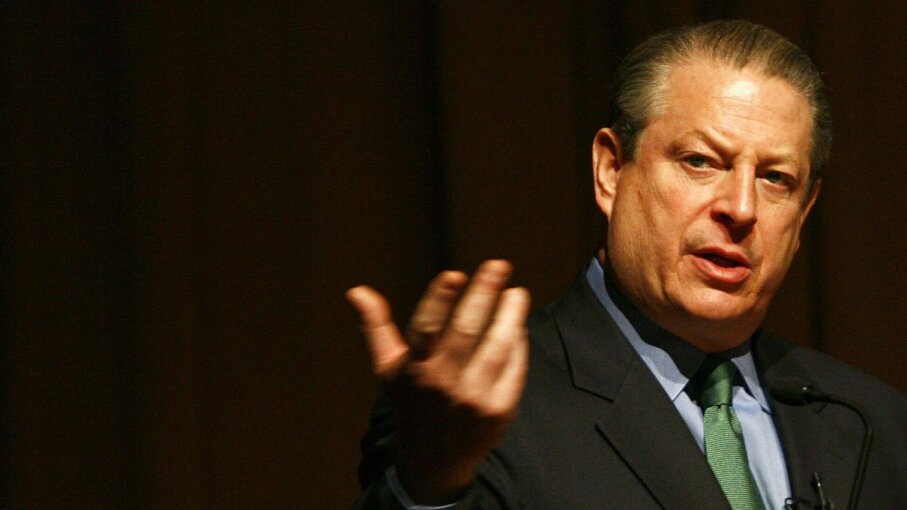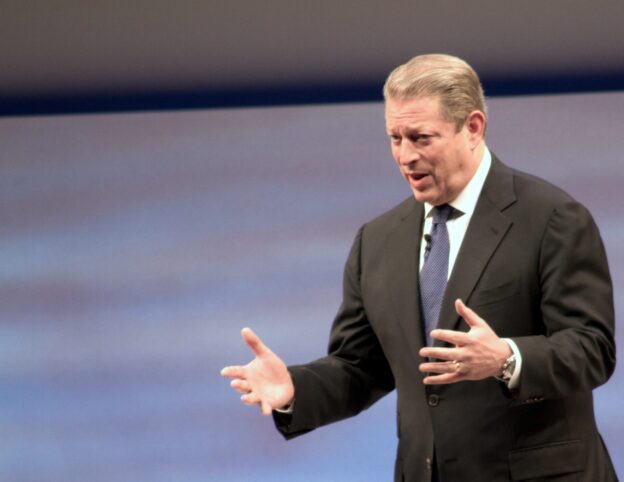Released less than a year after Hurricane Katrina decimated New Orleans, causing an estimated 1,833 deaths and $125 billion in damage, the 2006 documentary, An Inconvenient Truth, follows former Vice President Al Gore’s campaign for Earth. Gore travels around the Country and the globe to present his PowerPoint containing extensive scientific data and compelling imagery documenting the stark effects of climate change to our planet delivered in a relatable, often humorous, and profoundly emotional manner. Director Davis Guggenheim weaves the climate science with Gore’s personal history and lifelong commitment to educating environmental managers and the public on the dire consequences of human induced global warming and the resulting climate disasters that are becoming more frequent and intense.
Gore has been fascinated with climate change data since his college professor, Roger Revelle, one of the first scientists to study anthropogenic global warming, shared his long-range study of CO2 concentrations in the atmosphere with the classroom. The correlation between the drastic increase of CO2 produced by human activity since accelerated industrialization, and rising average global temperatures is unequivocal: “Out of 925 recent articles in peer-review scientific journals about global warming, there was no disagreement. Zero,” Gore states in the film. Global warming is very real and exceedingly urgent. If humankind does nothing to address it, the planet may reach a “tipping point” wherein the breakdown of Earth System’s natural climate processes will cause dramatic shifts in weather and precipitation patterns, vastly altered species diversity, population and distribution, and devastating consequences to human civilization.
Time lapsed images of shorelines retreating, lakes shrinking, and glaciers disappearing depict the powerful effects climate change has already had to the environment in many regions of the world. And projection graphs and imagery indicate what our future may hold if humankind fails to take immediate action to halt and reverse the climate crisis. How can we achieve this as a global population? We need to collectively stop burning fossil fuels and make serious transitions to renewable energy sources. And according to a 2004 article in Science, by Stephen Pacala and Robert Socolow, “humanity already possesses the fundamental scientific, technical, and industrial know-how to solve the carbon and climate problem.” For Gore, it is a moral issue and deeply unethical to not take the steps necessary to solve the climate catastrophe we have found ourselves in.
Although the scientific community is in “100 percent agreement” on climate change and its dangers, a small group of world leaders has sought to reposition global warming as theory rather than fact to perpetuate the reign of big oil business. The political corruption goes even as far as coercing scientists to alter reports. Al Gore, wants to know: “Do we have to choose between the economy and the environment?” He thinks not. However fast forward to about ten years later, and globally we have not made the appropriate and necessary adjustments to our carbon emissions yet.
The 2017 film, An Inconvenient Sequel: Truth to Power, further drives home the point that we are heating our planet to the point of irreparable damage. And Al Gore is heated too. Becoming visibly frustrated and angry in his speeches at the lack of political response to the climate change crisis that he has dedicated his life to, Gore still will not give up. He treks through flooded streets in Miami, meets with coal mine developers in China, and consoles survivors of a devastating typhoon in the Philippines bringing us with him deeper into the social and environmental justice issues that are inevitably tied to climate change. Gore evokes the words of Martin Luther King Jr. in his speech at an event wherein he compares the challenges and accomplishments of the civil rights movement to those of the climate movement. And there are some noteworthy accomplishments including huge leaps in renewable energy development.
The 2015 United Nations Climate Change Conference was the largest and emotionally charged hurdle overcome in the film to which Al Gore’s hard work no doubt contributed. The situation in Paris was initially looking bleak with terrorist activity two weeks prior to the conference and then the Indian Prime Minister originally unwilling to concede to the terms of the agreement. He insisted that: “energy is a basic need” and India still needs conventional energy and fossil fuel because “denying them that would be morally wrong.” This is reminiscent of Al Gore’s claim in the first film of the moral duty of humanity to act in the face of climate change but instead of from the stance of American white privilege, we are seeing the opposite prospective.
We get a bitter-sweet ending to the film with the Paris Agreement adopted, a huge win for the Climate Movement, yet the final minutes of the movie show Al Gore grief stricken after Donald Trump is elected the 45th President of the United States. Trump’s criticism of former President Obama’s attendance at the Climate Change Conference was a foreshadowing of exactly what level of support for climate action to expect of the new administration.
While An Inconvenient Truth may have had the ability to leave viewers startled, engaged, and inspired, An Inconvenient Sequel somehow falls a bit short in comparison. Maybe it is because the audience has become numb to the exhausting problem of climate change, or perhaps the film did not push the envelope quite far enough.





